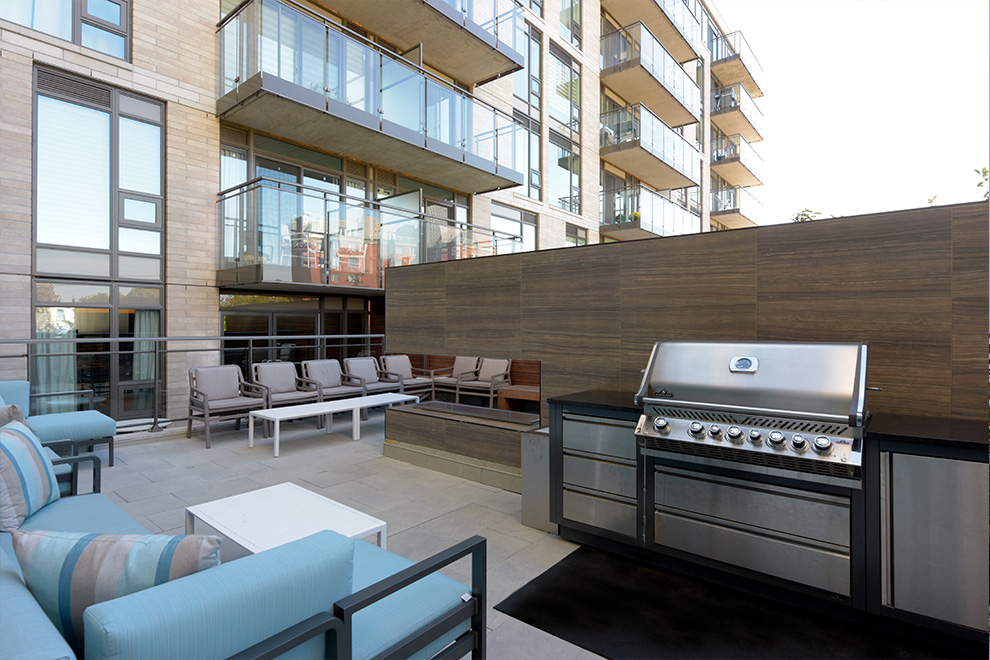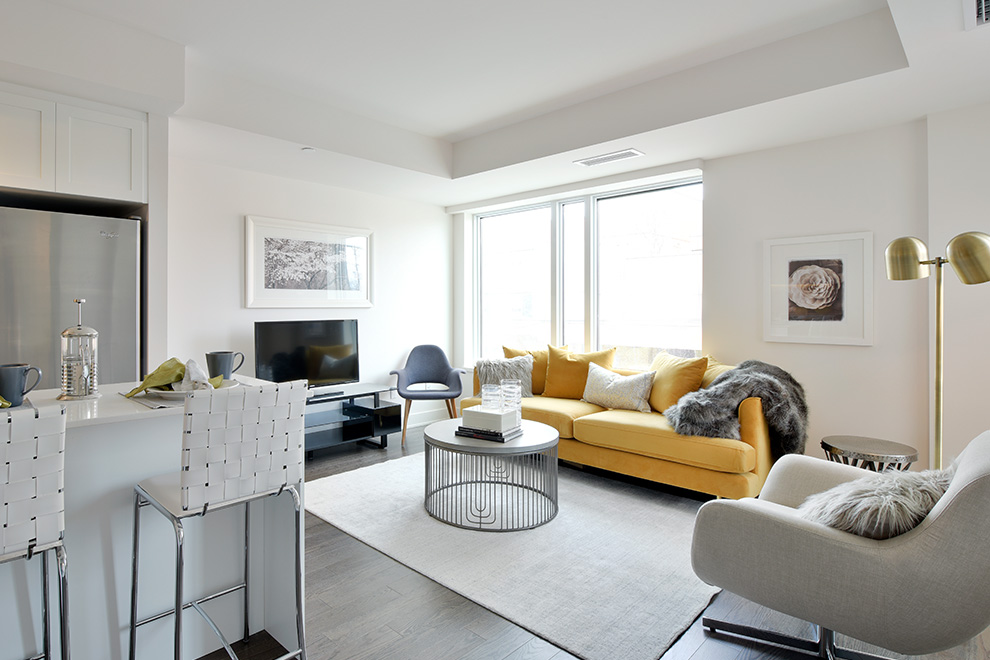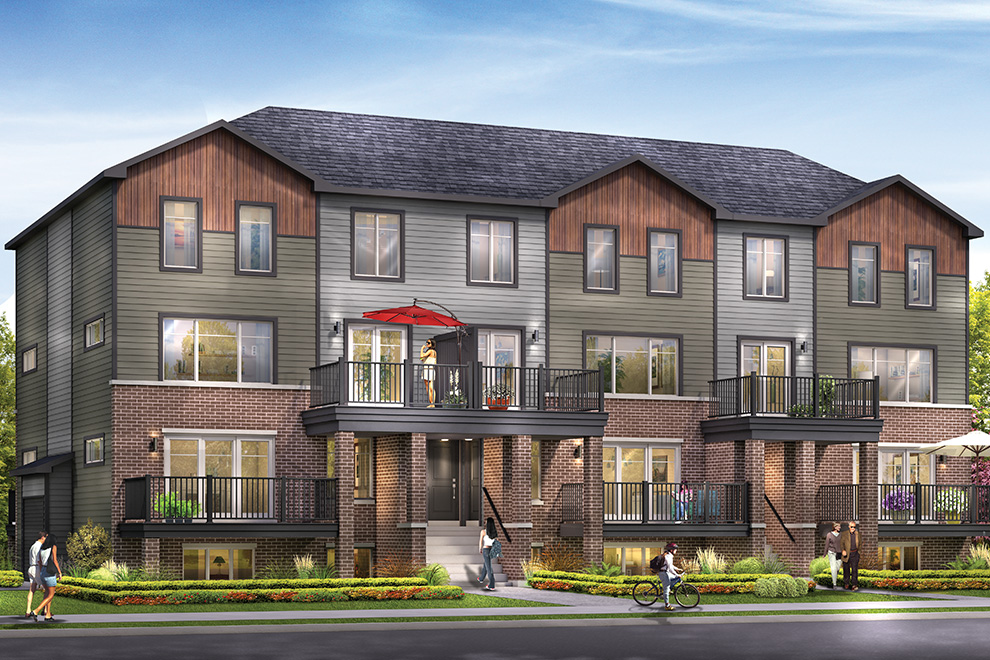Articles
How to Buy a New Home
Articles
Buying a Condominium
Over the past couple of decades, condominiums have become the No. 1 choice for many buyers of new homes and investors. Young professionals, downsizing baby boomers, even families are opting for the convenience, affordability and high-end design of condos, which are available everywhere from downtown neighbourhoods to the suburbs.
Here are some key things to think about when deciding if the condo lifestyle is right for you.

1. How a condominium works
When you buy a condo, you own the unit but share ownership of common areas like hallways, the lobby, the parking garage and the grounds. Financial and other responsibilities of condo owners are carefully regulated and described below.
2. Not all condos are the same
New condos in Ottawa can be everything from apartment suites in high-rise buildings to terrace homes and some townhomes. In high-rise buildings especially, size varies, from cozy studio layouts to larger suites with two or more bedrooms as well as luxurious penthouse suites.

3. Square footage
The square footage of a condo is generally given as two numbers. The larger number (for example, 732 square feet) refers to the interior space. The smaller number (for example, 101 square feet) refers to private outdoor space, such as a balcony or terrace.
4. Condo boards and regulations
Because there are multiple owners in a condominium, there are also multiple organizations involved in regulating it. A condominium corporation, for instance, is the legal entity that manages and administers the common elements as well as controlling the reserve fund that pays for the repair and maintenance of ageing, common elements like roofs. The corporation is governed by a board elected by the condominium owners. The Condo Board will also hire and manage a Property Manager who oversees day-to-day maintenance.
The Ontario Condominium Act broadly regulates the operation of condominiums across the province, including their governance. The act also regulates organizations like the Condo Authority, which is responsible for such activities as resolving disputes between condominium corporations and owners.
5. Personalization
New home builders in Ottawa like Minto Communities sometimes include upgrade and layout options in their condos. Because some layout options impact the location of plumbing and other infrastructure that affect the construction of an entire condominium building, there is a strict schedule for requesting special design features, and often these alternate layouts are pre-determined and offered flex plans.
6. Renovations:
Renovating a condo is often more complicated — and limited — than renovating a freehold home. For instance, moving a sink or toilet may not be possible because your plumbing is connected to your neighbour’s. Noise is also commonly regulated in a condominium, so a renovator’s hours may be restricted. A condo owner has to seek approval from a condo board before embarking on a renovation.

7. Operating expenses:
A condo owner is responsible for many of the same expenses as the owner of a freehold home, including heat, electricity and insurance on the unit. Operations and maintenance of the common areas, including amenities like parking areas or fitness facilities, is taken care of by the condominium corporation and paid for through monthly condo fees charged to all unit owners. Those fees also cover utility costs, taxes and insurance on common areas.
Owners are also directly responsible for maintaining elements within their unit, and to repair anything that falls outside of the new home warranty, for example, if the owners or tenants/guests break something.
8. Unexpected expenses:
As with freehold homes, Tarion and Minto Communities’ own warranty and building standards mean unexpected expenses are limited for the owner of a newly built condo, compared to older buildings. All condominium corporations are required to maintain a reserve fund, paid for by condo fees, to cover the repair and upgrading of common areas and elements as they age.

9. Occupancy:
The time between the launch and completion of a new condominium project varies, depending on the type of building, market conditions and other factors. A wait of two to three years is not uncommon, especially in a high-rise where the builder usually needs to sell a certain number of suites before getting financing for construction. As with a freehold home, this is your chance to make design decisions and maybe save a bit more money by staying in your current home.
New condo developments in Ottawa commonly have interim occupancy, which is regulated by the Condominium Act. This allows you to move into your completed suite and often use some of the amenities while construction is still underway on the floors above you. You pay an interim occupancy fee to the builder but you don’t actually own the unit yet — that happens when full occupancy is granted. However, the Tarion warranty on your unit does come into effect as soon as you move in. Minto Communities works hard to ensure that ongoing construction has a minimal effect on owners during the interim occupancy period.
Whether you purchase a high-rise suite or a terrace home, a new condo in Ottawa by Minto Communities is an assurance of a convenient and affordable lifestyle in a great location.
